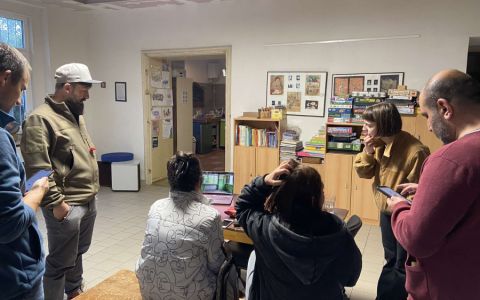200 Tons of Mercury in Abandoned Kyiv Factory
(source: The Epoch Times)
“Surrounded by residential buildings and trade centers, an abandoned factory in Ukraine’s capital city contains 200 tons of mercury that is slowly evaporating and spreading through the city … the 200,000 tons of waste products containing mercury include equipment, the ground, materials used in the factory, and the concrete floor … The Ukrainian Ministry of Finance reported at the end of 2012, however, that federal budget cuts would not allow it to give Kyiv money for this cleanup. A plan to remove the mercury is included in a 2013–2017 federal ecological program.”
Full article: http://www.theepochtimes.com/n3/55017-200-tons-of-mercury-in-abandoned-kyiv-factory/
UN meeting on chemicals moves forward on flame retardant ban but stalls on asbestos and paraquat
(source: International POPs Elimination Network)
Delegates from more than 120 countries moved forward on some key chemical and waste issues but stalled on some of the most important matters. The combined meetings of the Basel, Rotterdam, and Stockholm Conventions in Geneva covered prohibition of chemicals, waste guidelines, and responsible trade. HBCD, the third most commonly-used flame retardant chemical, was added to the Stockholm Convention for global elimination with a five-year exemption for use in building insulation. The listing also requires labeling new building insulation products containing HBCD which helps countries separate dangerous products and wastes. Delegates rejected a proposal to allow recycling of products containing HBCD – a practice prohibited by the Convention.
(Full article: https://ipen.org/conferences/cop6)
Developing Countries Rally to Prevent Industry Efforts to Exempt e-Waste from Trade Controls
(source: Basel Action Network)
The policy battle took place at the 11th Conference of the Parties to the Basel Convention over a Guideline on Transboundary Movement of e-Waste in Geneva. The Draft Guideline stated that used equipment that is not tested and functional would be considered waste and, if hazardous, would trigger the Basel Convention control procedures requiring at a minimum that all exports of hazardous electronic waste be notified to importing countries, and receive their consent prior to shipment. But because industrialized countries would not agree to the Guideline without major exemptions for equipment going for repair, it could not be adopted.
Chemicals sprayed in orchards causing fatal brain cancer in Kashmir
(source: Hindustan Times)
Toxic chemicals sprayed on fruit trees in Kashmir orchards is causing fatal brain cancer in the valley. A study found that 90 percent of patients who die from malignant brain tumor in the valley is linked to orchards where pesticides, insecticides and fungicides are used. It says that the incidence is alarming.







